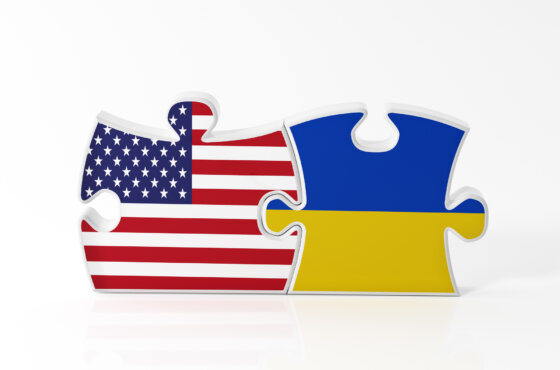The history of Islam in Uzbekistan can explain a lot in the case of a New York terrorist

Фото: Depositphotos
The history of Islam in Uzbekistan can explain a lot in the case of a New York terrorist, says Simon Shuster from the American edition. Timewhich article was translated by the edition Inosmi.
Saifullo Saipov, an Islamist extremist who, while driving a pickup truck, crushed The 8 man in Lower Manhattan on Tuesday, October 31, was very small when his native Uzbekistan gained independence from the Soviet Union.
The ancient cities of Uzbekistan, such as Bukhara and Samarkand, with their magnificent mosaics and elegant minarets, have been centers of Islamic culture for over 1000 years. But at the time when Saipov was born, these places could hardly be called especially religious. As a result of the long reign of the communist regime, elders are accustomed to atheism imposed by the state. The system perceived religion and religiosity as a form of protest and tried in every way to suppress them.

Фото: Depositphotos
Saipov's generation turned out to be different. After the collapse of the Soviet Union in 1991, various Islamic movements and new mosques began to appear in Uzbekistan and other parts of Central Asia. In this region, religiosity and religious rites are closely intertwined in the minds of people with a renewed sense of identity and national pride, and often mosque construction and religious movements received financial support from states such as Turkey and Saudi Arabia that sought to fill the void left after the collapse of the USSR their versions of Islam. But in Uzbekistan, this wave of resurgent religiosity provoked a new round of repression.
Islam Karimov, a cunning Soviet functionary who ruled Uzbekistan from the time he gained independence and until his death in 2016, ordered his security services to closely monitor religious groups and close mosques that could be - even potentially - extremist.
“Thus, this part of society has been consistently ousted from Uzbekistan since the 1990s,” explains Sergey Abashin, an expert on this region at European University at St. Petersburg.
By the end of the 1990s, an extremist underground had already formed in the country, the main purpose of which was to overthrow the Karimov regime. The most famous and dangerous group that belonged to the extremist underground was the Islamic Movement of Uzbekistan (IMU), which the United States officially recognized as a terrorist organization in September 2000 of the year. Planning to create an Islamic caliphate in Central Asia, in 1990-ies the IMU organized a series of terrorist attacks in Uzbekistan. But the agents of the secret police of Karimov were so cruel and ubiquitous - human rights organizations even recorded several cases of immersing living people in boiling water - that in the 2000s many IMU fighters fled from Uzbekistan to neighboring Afghanistan, where they fought with the Taliban against US and NATO forces.
At the same time, Uzbekistan faced a massive departure of its citizens abroad, where they hoped to find work and new opportunities. According to some data, about 2 of millions of Uzbek migrants now live in Russia, who mainly work in the fields of construction, road maintenance and other areas implying hard physical labor. However, over the past few years, more and more Uzbek migrants are going to the West, and around the lottery, where American green cards are being played, a small but quite thriving business.

Фото: Depositphotos
Abashin, who studies migration from Uzbekistan and other parts of Central Asia, says that special brokers often file several hundred applications for this lottery at a time. Uzbek Facebook pages and various websites offer this service for just 3 dollars, while the lucky ones who manage to win a green card usually have to pay much more to recover their documents. “This kind of targeted mass filing of applications for green cards has become really popular,” says Abashin. According to him, in this way about 20-30 of thousands of Uzbeks got to the USA. And among them, according to some reports, was Saipov.
The process of integrating Uzbeks into American society is more difficult than it could have been if they had migrated to Russia or other former Soviet republics, where they usually find communities that speak their language and understand their culture. Given the cost of travel to Uzbekistan from the United States — and the tiny size of the Uzbek community within the United States — these migrants often turn to religion trying to gain a sense of belonging.
“Contacts with families remaining in Uzbekistan are much less frequent than they could be if they were in Russia,” explains Abashin. “They are much more acutely aware of their isolation from home, from their roots, and, even if they like it in the USA, they feel very lonely there.” Therefore, they are beginning to look for contacts in the wider Muslim community and on the Internet. And at that very moment there is a risk of their radicalization. ”
Recently, two acts of terrorism were committed in Russia and the European Union, which became a confirmation and illustration of this trend.
In April, 2017, Akbarjon Jalilov detonated an explosive device in the St. Petersburg metro, killing 15 people. Jalilov, who was 22 at the time of the attack, was still a teenager when he came to Russia to earn money in 2011. According to investigators, his radicalization — including a trip to Syria in 2014 — began after he left his hometown of Osh in Kyrgyzstan, where a rather large Uzbek community lives.
After 4 of the day after the terrorist attack in St. Petersburg, Rakhmat Akilov, an 39-year-old native of Uzbekistan, driving the truck, crashed into a crowd of people in the center of Stockholm, killing four people and injuring more than a dozen. This was the worst terrorist attack in Sweden over the past few decades. An official statement from the Ministry of Foreign Affairs of Uzbekistan stated that the radicalization of Akilov occurred after his arrival in Sweden in 2014 and that, while in Sweden, he sent propaganda videos of ISIL to his friends in Uzbekistan via the Internet. He committed his attack only after the Swedish authorities refused to grant him asylum and issued a warrant for his deportation.
“At home, no one could have imagined that he was an extremist or even a Muslim,” says Danil Kislov, editor of the news site. Ferghana news - An independent site specializing in Uzbekistan, which covered in detail the terrorist attack in Stockholm. - He [Akilov] drank alcohol, did not pray. But it seems that after moving to Sweden, he had many personal problems. His life did not develop. "
After reports of the terrorist attack in New York have reached the wording Ferghana newsKislov sent his reporter in Uzbekistan in search of information about Saipov's roots. This turned out to be a very difficult task. After the reporter asked the authorities to tell him the address of the Saipov family, the police detained him and arranged for him to be interrogated. In the end, the police told him the address of the house, located in the center of Tashkent, the capital of Uzbekistan.
By local standards, this was an unusual manifestation of transparency on the part of the authorities, who usually openly ordered journalists to stop searching for them. But after the death of the dictator in September 2016, the country gradually began to show signs of greater openness to the West. The new leader of the country, President Shavkat Mirziyoyev, according to Kislov, “wants the Americans to love him. He wants to look like a democratic reformer. ”
On the morning after the terrorist attack on Manhattan, the President of Uzbekistan sent a letter to the White House with condolences and a promise that his country would use all its forces and resources to assist in the investigation of this terrorist attack.
However, Saipov’s links with terrorist groups — if they exist — are more likely to lead investigators to Syria rather than to Uzbekistan. After the outbreak of war in Syria in 2011, the remnants of the Islamist underground in Uzbekistan and other former Soviet republics went to Syria to join the caliphate in his war, which he declared in 2014. “In this sense, we are lucky here,” said Major General Apti Alaudinov, the head of the department for combating terrorism in Chechnya. - Most of them left to fight and die there. Only a few have returned. ”
In 2014, among the Islamist formations that fought in Syria, there was an Uzbeks group known as Imam Bukhari Jamaat, which published its own propaganda videos that told about training camps where the commanders spoke Uzbek. According to Russian intelligence services, in 2015, about 2,5, thousands of militants from the former Soviet republics of Central Asia joined ISIS.
“There were entire detachments consisting only of them,” said Said Mazhaev, an ISIL militant who left for Syria from Russia and returned home in 2014 year. According to him, in a conspiratorial place in southern Turkey, where he was given weapons and prepared for war, there were still a few dozen militants who spoke Russian and some other languages of the countries of Central Asia. According to Mazhaev, one of the tasks of the ISIS commanders in Syria was recruiting, which they carried out using online forums and instant messengers, communicating with potential jihadists around the world.
It is not yet clear whether the Manhattan terrorist was subjected to this kind of remote ideological treatment. The fact that he arrived in the US in the 2010 year indicates that during the Syrian war he was very far from the “Islamic State” that originated in the 2014 year. However, this does not mean that he could not become a victim of propaganda of ISIS.
Read also on ForumDaily:
Americans who are seen in connection with terrorists will be canceled passports
The New York terrorist thanks to the Green Card transported a relative to the US 23
Trump called on Congress to “immediately” cancel the Green Card Lottery
Subscribe to ForumDaily on Google NewsDo you want more important and interesting news about life in the USA and immigration to America? — support us donate! Also subscribe to our page Facebook. Select the “Priority in display” option and read us first. Also, don't forget to subscribe to our РєР ° РЅР ° Р »РІ Telegram and Instagram- there is a lot of interesting things there. And join thousands of readers ForumDaily New York — there you will find a lot of interesting and positive information about life in the metropolis.











